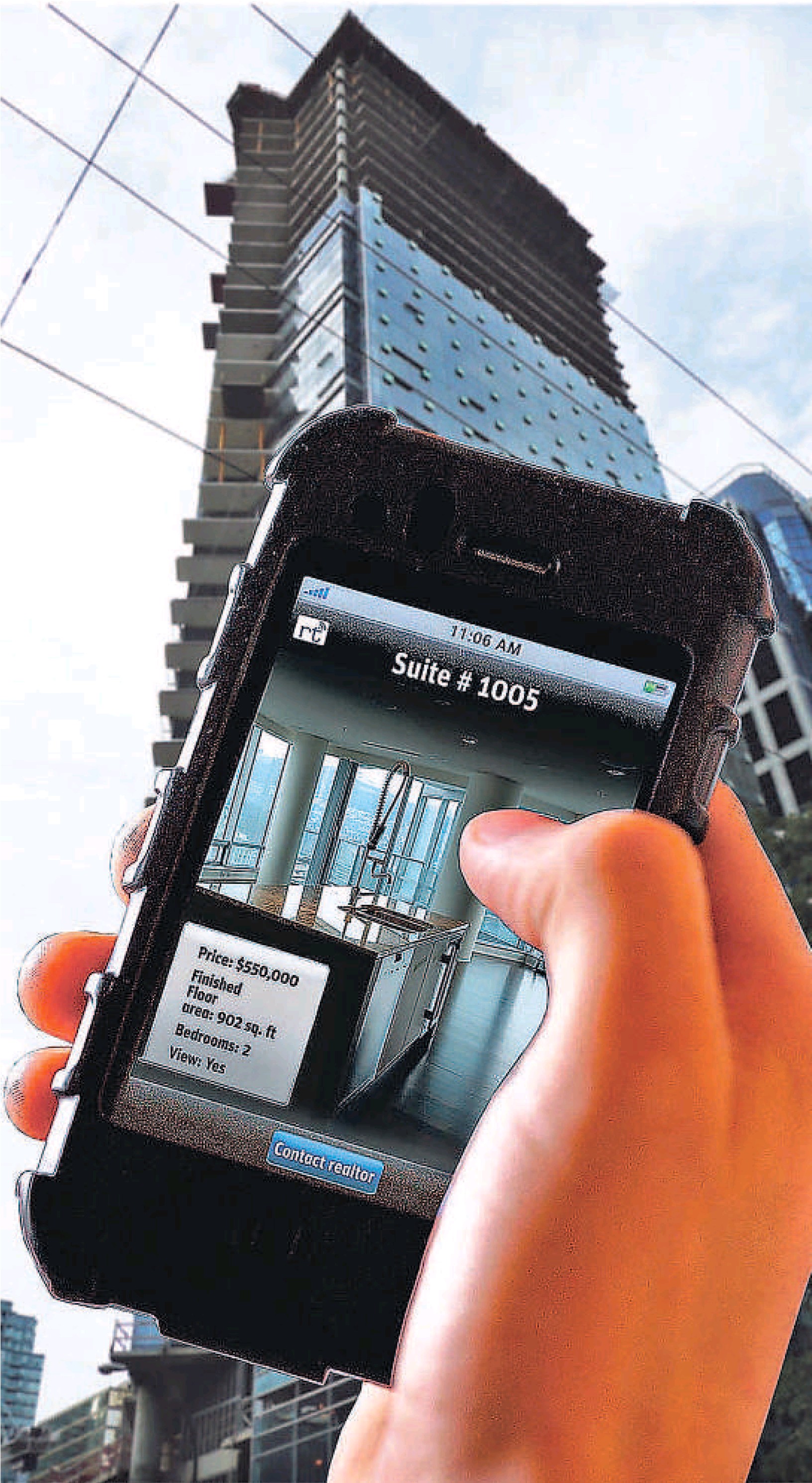Consumers can get listing information from property signs with realtor’s code
Derrick Penner
Sun

New real estate listing services are popping up to serve the growing number of people carrying mobile devices. Potential buyers can key in a number listed on for-sale signs to view property details. PHOTO ILLUSTRATION BY MABBIE WONG/VANCOUVER SUN
Starting the house hunt in Metro Vancouver no longer needs to be a static pursuit.
A couple of firms have joined the technological wave of text-messaging and map-location to launch services that deliver property information to consumers on their wireless devices.
It is the thin edge of making property searches completely mobile, although not a lot of consumers may be aware they are available.
“There’s no doubt that mobile is where it’s at,” says Kye Grace, a tech-savvy realtor and consultant in Vancouver. “From searching right down to a realtor [website] having a mobile option for iPhones, BlackBerrys and Android phones.”
The logic for realtors, Grace said, is that “you want to be where the consumer is. And in all reality, the consumer is going mobile.”
From the consumer’s perspective, Grace said regardless of how much time consumers spend looking up property listings on their computers at home, they still wind up driving around to see the offerings, so its more convenient and efficient if you can deliver information to them where they are.
RealtyText is one program created by the Vancouver-based firm RT RealtyText, which uses text-messaging to deliver information to house-hunting consumers.
Company president George Haddad said realtors can subscribe to the service, which allows them to upload their listings to RealtyText’s system, then put an addition to their property signs printed with the realtor’s special code.
The consumer who sees that sign texts the code to the RealtyText system, which sends back the listing information — including specs, photos and an option to contact the listing agent to set up a viewing.
“Business has been really, really good,” Haddad said of his company’s initial sales campaign.
“What [realtors] like is that they’re providing information to clients 24/7,” he added. “As well, they love the fact they can monitor activity on a property,” by seeing how many people request information.
Haddad, an active developer, said he got the idea for RealtyText out of his own frustration at not being able to get information quickly while he was on the road.
And from watching American Idol and registering the show’s method of text messaging for viewers to vote for favoured contestants, Haddad thought that text would be the way to do it. After about 18 months of development, he launched RealtyText earlier this year.
The technical experts at Myrealpage.com dreamed up a more comprehensive search tool that marries Google Maps with the Multiple Listing Service databases of B.C.’s real estate boards, and provides a search tool accessible through a mobile version of a subscribing realtor’s website.
“With the mobile product, it gives consumers their first opportunity to go and shop for a home away from their home computer,” Ray Giesbrecht, Myrealpage.com’s sales and marketing manager in Vancouver, said in an interview.
The service uses the iPhone’s GPS navigation system to show consumers MLS property listings within the vicinity of their location on a Google Map, and set it to follow them around, plotting more listings as they travel through neighbourhoods.
This gives homebuyers “a more realistic context of the property vis-a-vis its neighborhood,” he added.
Giesbrecht said the system also has options realtors can access for users to flag favourite listings, grade them, and make comments on them for future review at the realtor’s office.
The Rogers-owned search service Zoocasa.com does offer a similar mobile application for the iPhone, but Giesbrecht noted that it aggregates listings from sources other than MLS databases, so its listings are limited compared with Myrealpage.com.
Grace, while he is not a user, offers a favourable review of Myrealpage.com’s offering.
“As far as individual products go, Myrealpage is the best,” he said, “but I don’t think they have any competition either.”
The difficulty right now, Grace added, is accessibility. At this point, consumers probably aren’t aware that the tools are available.
© Copyright (c) The Vancouver Sun

